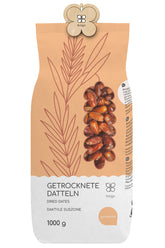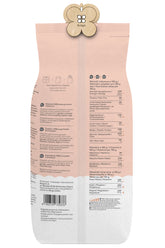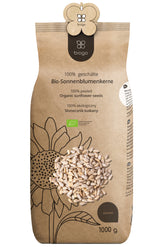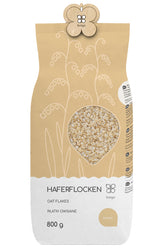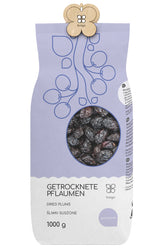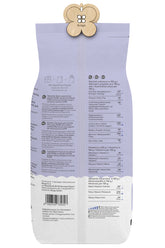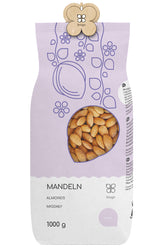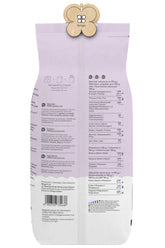In a time when health and well-being are becoming increasingly important, fiber is coming more into focus. As important components of a balanced diet, they play a crucial role in digestion and overall well-being. But what exactly is fiber, and how can it help us promote healthy digestion? In this blog post, we want to address these questions and clarify some common myths about fiber.
What is fiber?
Fiber, also known as dietary fiber, are carbohydrates that cannot be digested or are only partially digested by the human body. They are mainly found in plants such as grains, fruits, vegetables, legumes, and nuts, and can be divided into soluble and insoluble fibers.
Insoluble fibers, such as cellulose or lignin, pass through the digestive tract largely unchanged and help regulate bowel movements and stimulate intestinal activity. Soluble fibers, such as pectin or beta-glucans, are partially fermented by gut bacteria and can influence cholesterol levels and blood sugar levels.
Why is fiber so important for digestion?
Fiber plays a crucial role in healthy digestion for several reasons:
-
Regulation of bowel movements: Insoluble fibers increase stool volume and thus facilitate bowel movements. They ensure regular bowel emptying and help prevent constipation.
-
Promotion of gut flora: Soluble fibers serve as a food source for good gut bacteria. Their fermentation produces short-chain fatty acids, which in turn promote the growth and activity of gut bacteria.
-
Satiety and weight management: High-fiber foods are typically voluminous and therefore keep you full longer. This can help regulate appetite and support healthy weight management.
-
Reduction of inflammation: Some fibers, like omega-3 fatty acids, have anti-inflammatory properties and can thus alleviate discomfort in the digestive tract.
-
Protection against colon cancer: Studies suggest that a high-fiber diet can reduce the risk of colon cancer, as fiber can bind and excrete carcinogenic substances.
Myths about fiber
Despite the many benefits of fiber, there are some widespread myths that need to be debunked:
Myth 1: Fiber leads to bloating and digestive problems
It is true that the body initially needs some time to get used to increased fiber intake. Therefore, mild bloating or abdominal cramps may occur in the first few days. However, these discomforts usually subside quickly once the gut flora has adapted to the additional fiber. It is important to slowly increase the fiber content and drink enough fluids.
Myth 2: A fiber-rich diet leads to deficiencies
This myth is clearly debunked. A balanced, fiber-rich diet provides the body with all the important nutrients it needs. On the contrary: studies show that people who eat a fiber-rich diet are less likely to suffer from deficiencies. The key is to pay attention to a variety of fiber sources.
Myth 3: Fiber is only important for older people
Fiber is important for people of all ages. Even children and adolescents benefit from adequate fiber intake, as it supports gut health, satiety, and weight regulation. However, as people age, fiber gains additional importance as it can reduce the risk of cardiovascular diseases, diabetes, and cancer.
How much fiber does the body need?
According to the German Nutrition Society, the recommended daily dose of fiber is 30 grams for adults. Children and adolescents require between 10 and 25 grams per day depending on their age. Unfortunately, very few people reach this target. According to studies, actual fiber consumption in Germany averages only 15-20 grams per day.
To increase fiber intake, it is recommended to integrate fiber-rich foods such as whole grain products, legumes, fruits, and vegetables into daily life. Nuts, seeds, and smoothies are also excellent sources of fiber. It is important to slowly increase consumption and drink sufficient fluids to prevent discomfort.
Conclusion
Fiber plays a crucial role in healthy digestion and overall well-being. It regulates bowel movements, promotes gut flora, increases satiety, and has anti-inflammatory properties. Despite these many benefits, there are some widespread myths that need to be debunked.
A balanced, fiber-rich diet is important for people of all ages and should be a permanent component of a healthy lifestyle. By gradually increasing our fiber intake step by step, we can improve our digestion and well-being in the long term.

